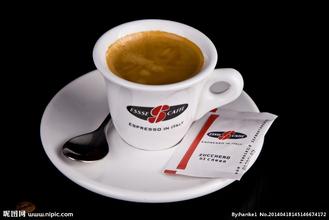Introduction to the characteristics of Malaba Coffee Flavor Manor in Rwanda
The watershed between the Congo Basin and the Nile River basin runs through Rwanda from north to south, and about 80 per cent of the country is drained from the Nile River, while about 20 per cent draws water from the Ruzizi River and Lake Tanganyika. The longest river in the country is the Nyabarongo River, which originates in the southwest and turns north, east and southeast respectively before flowing into the Ruvwu River and forming the Kagera River, which will flow due north along the eastern border of Tanzania. Both the Niabalongo and Kagera rivers will eventually flow into Lake Victoria. Rwanda has many lakes, the largest of which is Lake Kivu. Located at the base of the Albertine Rift Valley and extending along the western border of Rwanda, the lake is 480 meters deep at its deepest point, making it one of the 20 deepest lakes in the world. Other large lakes include Lake Burera, Lake Ruhondo, Lake Muhazi, Lake Rweru, and Lake Ihema, the largest of a series of lakes on the eastern plains of Akagera National Park. [2]
terrain
Rwanda is mountainous and has the title of "country of thousands of hills". The whole country is situated at high altitudes: the lowest point, the Luziji River, is 950 metres above sea level. The central west is dominated by mountains, part of the Albertine Rift Range, which in turn is part of the Great Rift Valley of East Africa and runs north to south along Rwanda's western border. The highest mountain in the country is located in the volcanic chain of the Virunga Mountains in the northwest, of which Karisin is 4507 meters higher than the volcano and is the highest geographical point in Rwanda. The mountains in the western part of the country, located in the Albertine Rift Mountain Forest Ecological Zone, range from 1500 to 2500 metres above sea level. Central Rwanda is dominated by rolling hills, while the eastern border region consists of savannas, plains and swamps. [2]
climate
Rwanda has a temperate and tropical plateau climate, with temperatures lower than typical equatorial countries due to its higher altitude. Daily temperatures in Kigali, located in the centre of the country, generally range from 12 to 27°C, with relatively small fluctuations throughout the year. There are also some places in the country with large temperature differences. The temperature in the mountainous west and north is lower than that in the low-lying areas in the east. Rwanda has two rainy seasons each year, one lasting from February to June and the second from September to October; there are also two dry seasons, the longer one from June to September, which often does not rain at all, and the other from December to February, which is relatively less severe. Rainfall varies from region to region, with more precipitation in the west and northwest than in the east and southeast. However, the rainy season pattern has changed in response to climate change. A report by strategic foresight says there are fewer rainy days each year, but more rain in short periods. In some cases, heavy downpours occur frequently in a single day, with more rainfall than in the previous month combined. There are also cases where the rainy season comes late or ends early
Rwanda has been growing coffee since colonial times. Although coffee is the main crop, the quality of coffee produced in Rwanda is not outstanding. The status of coffee in the world is low and few people pay attention to it. Rwanda grows mostly bourbon coffee varieties. Rwanda, known as the "country of thousands of hills", has a high altitude mountain environment, fertile volcanic soil and abundant rainfall, which is conducive to the growth of coffee trees. The advantages of varieties combined with excellent natural conditions should have produced high-quality coffee, but why is the coffee quality not satisfactory? The reason lies in the later processing links. Improper processing will reduce the quality of coffee and sacrifice many good flavors in vain. Harvesting, planting, processing, grading, transportation and other links will directly affect the quality of coffee beans, one of the links of the lack of control will become a stumbling block to make good coffee
The first problem that Malaba coffee farmers solved was to set up a washing station. Coffee cherries must be transported to a washing station within twelve hours of picking to remove the sugar coating under the outer skin of the coffee beans, otherwise the flavor of the coffee will be greatly damaged. In July 2001, with funding from UNR, the Office des Cultures Industrielles du Rwanda (OCIR-Café), ACDI/VOCA and ISAR, they built the first cleaning station near the main road in Cyarumbo district. However, the washing station was not activated until late in the harvest season, so only 200 kg (441 lb) of the harvest was washed that year. However, the result was unexpectedly good. In 2002, the washing station was upgraded to provide more coffee processing. ACDI/VOCA was responsible for funding the construction of pipelines to bring in Mount Huye mineral water and help improve the efficiency of the cleaning station. The pipeline was commissioned in March 2002.
During the 2002 harvest season, Rwanda introduced a new certification system to ensure that coffee beans delivered to washing stations maintained proper quality. About half of Abba Uzamgambi's members are certified, allowing the cooperative to find buyers in specialized markets in Europe and North America.
Recognized by the world
Malabar beans are hand-picked and sorted according to quality
Malabar beans are hand-picked and sorted according to quality
PEARL brought coffee specialists to Rwanda, where it was responsible for maintaining contact with the seller, Community Coffee of Louisiana, USA, and sending samples to Louisiana. In June 2002, representatives of Public Coffee visited Malabar. At that time, the current President of Rwanda, Paul Kagame, stated on behalf of the Government the importance of this programme. Public Coffee bought 18000 kilograms (40000 pounds) of maraba beans for $3 a kilogram, above the market average. Coffee beans are shipped to Louisiana, where they are roasted and used in the company's fine coffee. It was also the first direct contract between an American roasting company and an African coffee cooperative.

Important Notice :
前街咖啡 FrontStreet Coffee has moved to new addredd:
FrontStreet Coffee Address: 315,Donghua East Road,GuangZhou
Tel:020 38364473
- Prev

Introduction to the characteristics of the manor producing area of Colombian boutique coffee beans with strong taste
The land of the District of Columbia [2] originally came from Maryland and Virginia. When the District of Columbia was founded, the north bank of the Potomac River included Georgetown (Georgetown,D.C.), Washington City (Washington City,D.C.) and Washington County (Washington County,D.C.). In 1878, the three places merged into Washington, D.C., and the city of Washington.
- Next

Introduction to the characteristics of Hawaiian Coffee Flavor Manor with very Special taste
In 2000, the resident population of the state of Hawaii was 1.212 million and the floating population was 1.334 million (including tourists). Japanese are the largest Asian people in Hawaii, followed by Filipinos, Aborigines, Chinese, Koreans, Vietnamese, Laotians and Thais. The urban population accounts for 86.5%. About 80% of the state's population is concentrated on Oahu. [1] educate Harvey of Hawaii State University
Related
- Detailed explanation of Jadeite planting Land in Panamanian Jadeite Manor introduction to the grading system of Jadeite competitive bidding, Red bid, Green bid and Rose Summer
- Story of Coffee planting in Brenka region of Costa Rica Stonehenge Manor anaerobic heavy honey treatment of flavor mouth
- What's on the barrel of Blue Mountain Coffee beans?
- Can American coffee also pull flowers? How to use hot American style to pull out a good-looking pattern?
- Can you make a cold extract with coffee beans? What is the right proportion for cold-extracted coffee formula?
- Indonesian PWN Gold Mandrine Coffee Origin Features Flavor How to Chong? Mandolin coffee is American.
- A brief introduction to the flavor characteristics of Brazilian yellow bourbon coffee beans
- What is the effect of different water quality on the flavor of cold-extracted coffee? What kind of water is best for brewing coffee?
- Why do you think of Rose Summer whenever you mention Panamanian coffee?
- Introduction to the characteristics of authentic blue mountain coffee bean producing areas? What is the CIB Coffee Authority in Jamaica?

